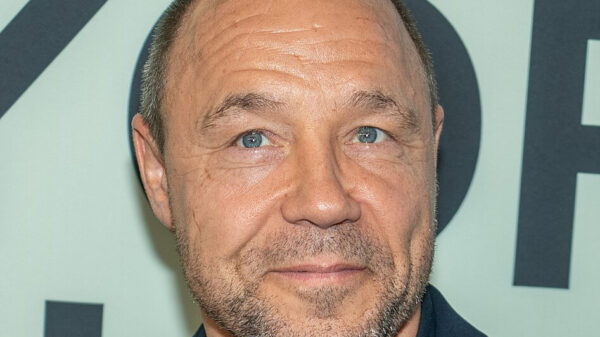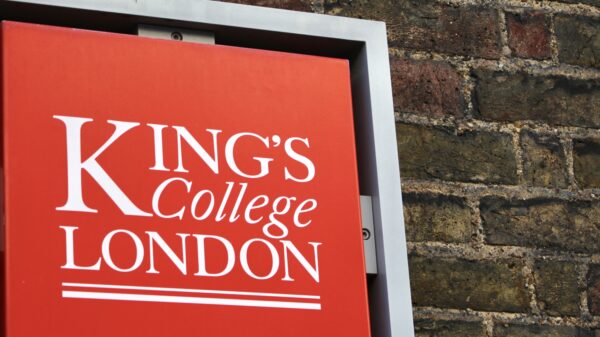Staff writer Teddy D’Ancona deep dives into this year’s BFI London Film Festival, providing key insights and reviews.
Twenty-one days. Three theatres. Well over two hundred films. The 69th annual BFI London Film Festival was my first film festival and what an event it was. Serving as press delegate on behalf of Roar News, I was granted unlimited access to all available screenings across the extended three week program, taking place at BFI Southbank, Royal Festival Hall and, predominantly, Picturehouse Central. From untimely screenings of absurdist horror films at 8am, to relaxed showings of comedies in the late afternoon, the cinemas became the temporary homes for journalists reporting on the festival. In addition to The Prince Charles Cinema, Curzon, Vue West End, ICA and BFI IMAX, these truly weren’t bad places to be stuck in. As painfully cliché or pretentious as this may feel like to write, I felt like much more than just one of a hundred strangers sitting in the dark to watch a magic trick. I felt like part of a community, there to celebrate an art form in its still gleaming viewing medium.
The festival was overall spectacular, the new gems from rising talents in the industry standing out as highlights of this year’s programme. That being said, the screenings I managed to attend from notable auteur and veteran filmmakers were more varied, ranging from solid to self-indulgent disasters. The ten films previewed across this two-part review certainly span a spectrum of quality, but even at their worst, each one endeavours to offer something engaging, meaningful or unique.
2025 is shaping up to be an incredible year for film and what better way to set things in motion than…
Wake Up Dead Man: A Knives Out Mystery

The opening film of the festival, and among its most anticipated, Wake Up Dead Man is the wildly entertaining, if a tad unnecessary, third instalment in Rian Johnson’s Knives Out saga. Daniel Craig returns once again as private detective Benoit Blanc to crack the seemingly unsolvable case of a churchouse murder in upstate New York. Featuring a whole new all-star cast of colourful suspects, the resident churchgoers’ sins slowly come to light as the search for the true killer thickens.
2019’s Knives Out was a lightning in a bottle throwback, a classic Cluedo-themed whodunnit brought back to life in a genuinely well-crafted murder mystery. An open-and-shut case with no loose ends, its unwarranted sequel Glass Onion recycled its formula to diminished effect in a predictable pseudo-mystery. A follow-up seemed poised to drain the franchise even further of its original charm, yet Wake Up Dead Man unexpectedly delivers a resurgent improvement for the franchise.
Johnson refocuses its perspective away from Blanc as the main attraction, introducing former boxer turned priest Rev. Jud Duplenticy (Josh O’Connor) as this mystery’s central protagonist. From Sherlock Holmes to Miss Marple, the greatest recurring detectives who clearly inspired Johnson are purposefully not point-of-view protagonists – mystery stories being at their best when audiences can engage with a fictitious crime from a surrogate character. While Duplenticy certainly comes with a quirky backstory, his relatable everyman personality serves as a necessary foil to Blanc’s charming eccentricity. The duo serve as an amusing, if slightly diminished, rehash of Blanc’s dynamic with Marta (Ana de Armas) from Knives Out. The other players to the film’s central mystery are also delightful additions overall, Josh Brolin absolutely stealing the show as Duplenticy’s dictatorial pastor Msgr. Jefferson Wicks. Johnson’s habitual relapses into snarkily-forced humour and expository writing are, for the most part, pulled off by the talent of these performers, creating a fun – if highly convoluted – viewing experience.
When all wrapped up, Wake Up Dead Man makes for a decent entry in a series that probably never should’ve been. For what’s set to be Netflix’s blockbuster of the holiday season, it’s a moderately enjoyable part of a franchise somewhat overstaying its welcome, featuring both the triumphs and failures of its predecessors. Knives Out’s fourth instalment remains to be confirmed, but perhaps, for now, some things are best left to rest.
The Chronology of Water
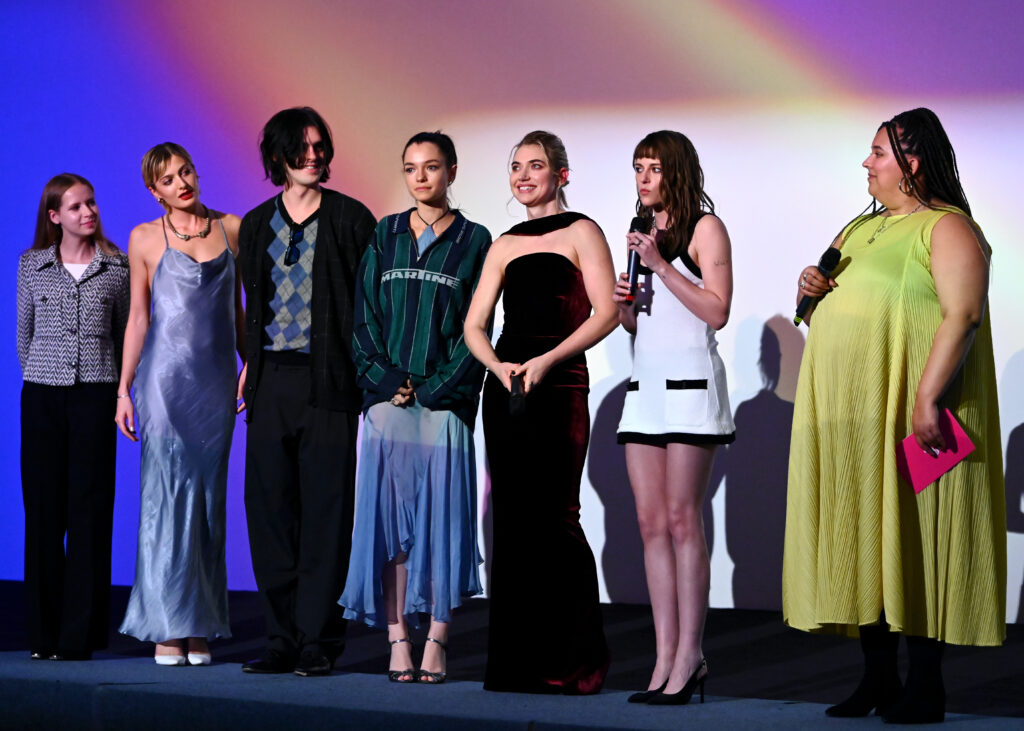
Adapted from the memoir of the same name, The Chronology of Water is the bold directorial debut of Kristen Stewart. Chronicling the abusive upbringing and ensuing damage carried into adulthood of original author Lidia Yuknavitch, the film is a harrowing recount of a life scarred by unresolved trauma. It pushes the boundaries of viewing tolerance, rarely shying away from explicit content in Yuknavitch’s dark sexual history. The final product marks a promising, if endlessly gratuitous, first feature film for Stewart behind the camera.
Imogen Poots’s lead performance as Yuknavitch is by far the stand-out aspect, the actress capturing the shattered emotional spirit of a woman haunted by her past self’s suffering. The dramatised author is fleshed out as someone who has inherited this lingering pain into her provocative adulthood, sex being a means of power in both negotiation and intimidation. From her first year in college to her steps in womanhood, Poots brings a distinct, yet consistently vulnerable, iteration to each slice of Yuknavitch’s lifetime. Across her tripartite career as a swimmer, teacher and writer, Yuknavitch’s remarkable journey of recovery is fully realised in this performance. Her story isn’t depicted as the search for meaning in senseless abuse, but rather the process of moving forward in reclaiming her own narrative. The past’s current is inescapable, but one can either drown in its depths or rise to the surface in self-reconciliation.
The film stays afloat due to the raw power of the original writing in tandem with Poot’s performance, yet its recount of Yuknavitch’s life certainly isn’t faultless. It must be noted that glimpses of certain graphic material often cross moral boundaries. While plainly intended to be sickening, the visual depictions of her abuse feel crafted to provoke controversy. It is vitally important that her biography is shared and circulated, Stewart’s choice to adapt it providing an entirely new platform. Yet in lingering on this explicitly questionable content, Yuknavitch’s arc is at times drowned out by this repeated shock value, little of it serving a meaningful purpose in retelling her survivor’s story. As the first of what promises to be many acclaimed directorial projects to come, this artistic misstep is hopefully best left behind by the undoubtedly talented Stewart.
Bad Apples
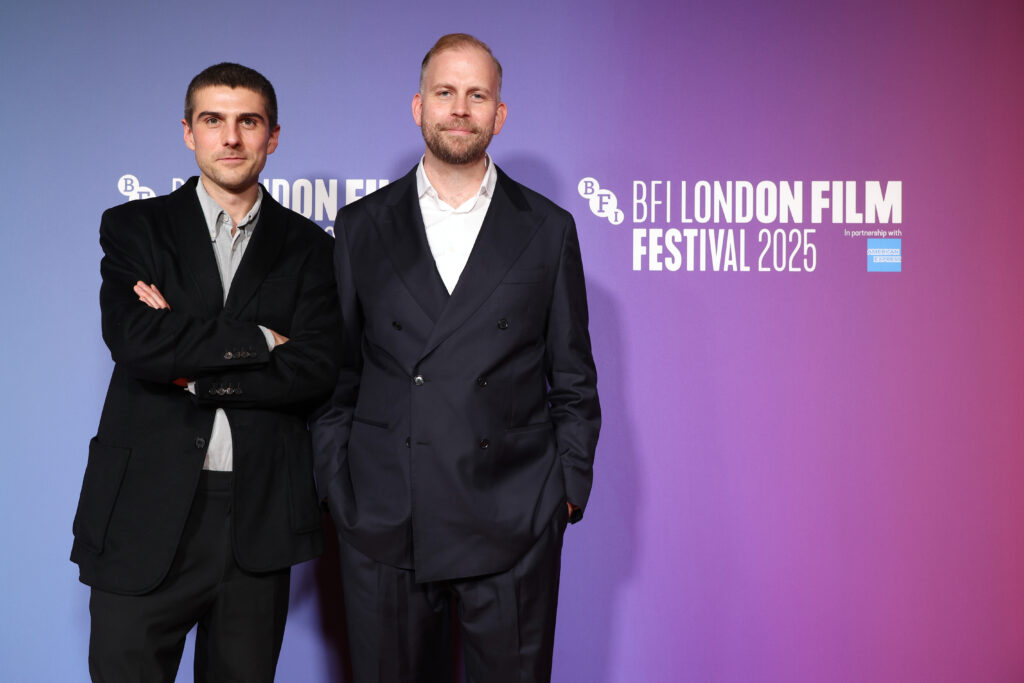
A twisted satire of the UK education system, Bad Apples stars Saoirse Ronan as Maria – a diffident, lonely and utterly overworked primary school teacher in the unflatteringly depicted English countryside. Desperately trying and miserably failing to control her disruptive tween classroom, a turbulent student named Danny (Eddie Waller) is soon established as the unyielding thorn in her side. There’s little that can be revealed beyond that without veering into increasingly bleak spoiler territory, but know it’ll make you bitterly laugh at the uncomfortable truths of our schooling society in a completely unmissable black comedy.
I had the chance to extremely briefly speak to Jonatan Etzler at the BFI’s “Filmmaker Afternoon Tea”, the director providing key insight into this unreleased morbid masterpiece. As one can gather, Elzter would express the film was born out of dissatisfaction with the outdated and downsized school system, expressing this global issue, in which a vast number of students are academically behind, to be the driving impetus behind reimagining the Swedish novel De Oönskade into modern-day. He further shared unexpected catalysts behind its creation, recounting first watching Ronan host Saturday Night Live as a showcase of her comedic talents, noting she was always the first choice for the lead role. He would later liken her portrayal of Maria to Mr. Bean of all characters – a comparison which, it must be said, took me by surprise. He would subsequently clarify this, relating Maria’s cyclical “repair and destroy” mentality to the escalating blunders of the eponymous British sitcom character.
This fatal flaw of Maria as both a tragic and comical protagonist drives Bad Apples as a dark comedy of errors, the upcoming film being nothing less than essential viewing. In his first English-language film and her screenwriting debut, director Etzler and writer Jess O’Kane have collaborated to deliver one of the finest films of the festival.
Orwell: 2+2=5
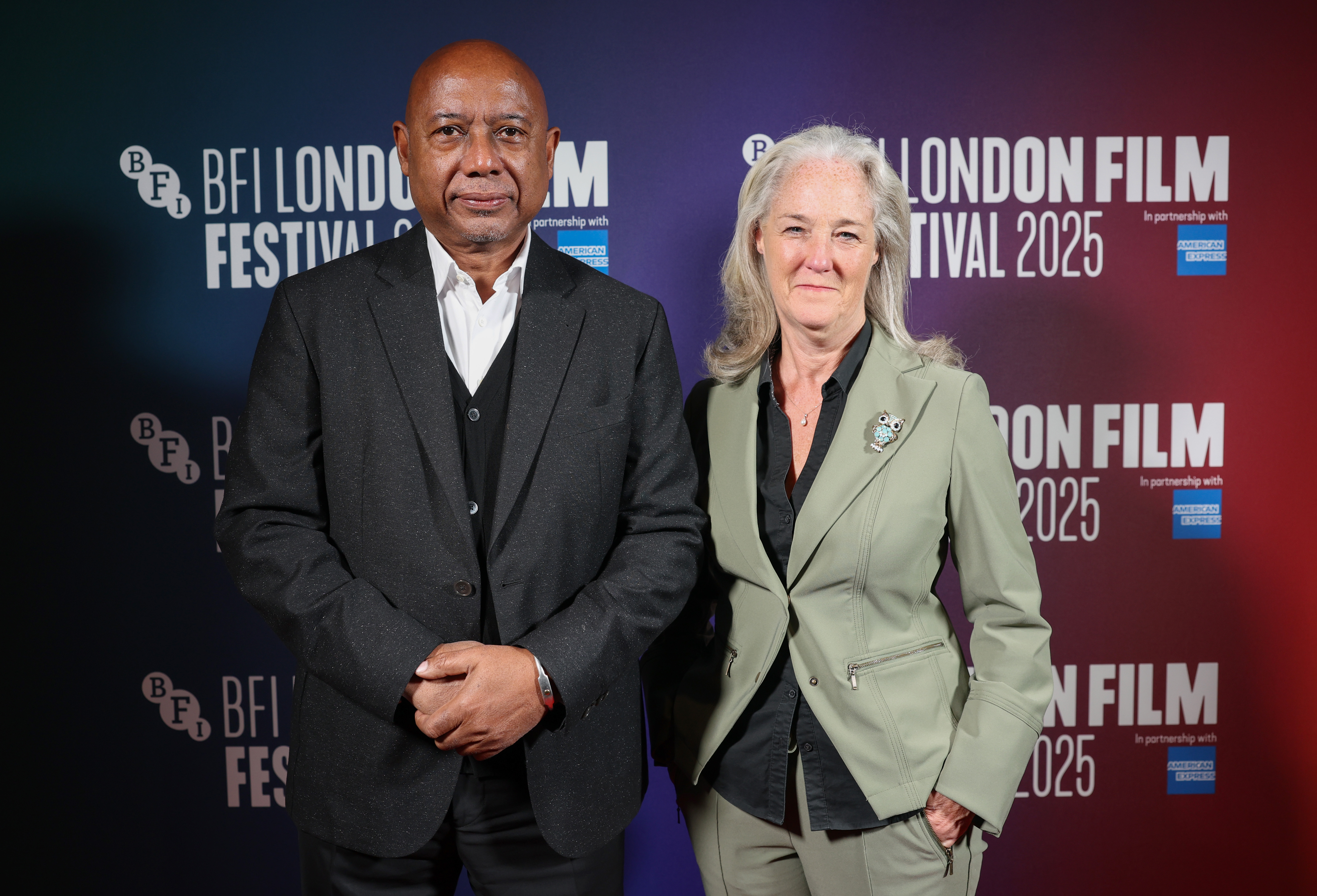
From acclaimed documentary filmmaker Raoul Peck, Orwell: 2+2=5 is a mixed bag of what could’ve been a masterpiece. Adapted from various letters, essays and diary entries from George Orwell, Peck pictures the enduring relevance of his writings, as narrated by Damian Lewis, in the age of late-stage capitalism. In relation to Orwell’s most revered work: 1984, the timely connections of a surveillance state in the form of data farming, historical revisionism by an authoritarian cult of personality and war as peace are evident in 2025. His prophetic writings creatively actualised by a man of Peck’s talents should produce a classic. Much like the titular equation however, the variables don’t quite bring about a sensical result.
To be clear, I wholly agree with this documentary’s political perspective, yet it cannot be purely commended on this standpoint alone. Peck splutters in his essayistic presentation, using the documentary medium as less of a tool to truly spotlight the harrowing similarities of Orwell’s foreseen dystopia to today’s world, and more so a slideshow. For two hours, the film is a disjointed compilation of his musings and footage, regurgitating his thoughts while rarely providing input to the actual conversations it attempts to incite. The pertinence of Orwell’s words speak for themselves in tow with Trump’s re-election, the war in Gaza and the rise of Artificial Intelligence, yet in this documentary’s overproduction, they erratically seep through in its haphazard use of archival material.
Orwell: 2+2=5 is at its best when not compensating for issues it never had, the reels and figures provided on propagandic “newspeak” and harrowing refugeedom being necessary reminders of the horrors we remain selectively ignorant to. Unfortunately, the majority of intercut footage is structurally disjointed between Orwell’s narration, ranging from prolonged excerpts of Orwellian film adaptations to the supposed prescient science-fiction of Spielberg’s Minority Report (2003) and M3GAN (2022). By and large, it doesn’t feel observational as a documentary. It feels unfocused in its gimmicked stylisation, depicting parallels between Orwell’s totalitarian dystopia and modern society, while never providing its own actual commentary. Ironically, despite its championing of free will, the documentary has nothing original to say.
Twinless

Delirious in every sense of the word, James Sweeney writes, directs and stars in his absolutely fantastic second feature film: Twinless. The black comedy follows the mismatched friendship of Roman (Dylan O’Brien) and Dennis (portrayed by Sweeney himself), two mourning men who form an unlikely bond after meeting at a support group for bereaved twins
Twinless never has a dull moment, flawlessly balancing genuine emotion and bleak humour in the sheer unfilteredness of its writing. The characters range from brutal to bizarre in their lack of an internal-censor, yet still remain deeply repressed as people in their off-kilter social reality. As the film itself proves, to speak one’s own mind is not always to be honest. While the hot-headed Roman and sullen Dennis appear to find the connection they once deemed lost in one another, nothing is ever as simple as it seems beneath the half-empty exterior. Under the surface, this quirky bromance chips away at its characters piece by piece in an intimately nuanced portrayal of self-loathing, co-dependency and how one overcomes those aspects of their worst self in forgiveness.
Sweeney has certainly made his mark as one of the most promising young filmmakers working today, Twinless having deservedly earned him the Audience Award for best dramatic feature at Sundance Film Festival. It’s a collective showcase of his talents as a writer-director and performer as a deviantly human, yet deeply grounded tale of what it means to be incomplete as a person – whether that be out of grief or guilt. The film’s UK release date remains to be confirmed, so keep an eye out for this abnormal masterpiece in the meantime.



